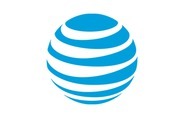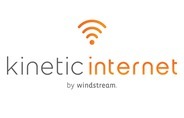Best Internet Service Providers
Internet service providers (ISPs) compete for the fastest connection and strongest network support. Read our guide to research and find the best internet service provider for you. We explain what to look for, including speed, customer support, availability and connection types.
- Our recommendations are based on what reviewers say.
- 4,337,775 reviews on ConsumerAffairs are verified.
- We require contact information to ensure our reviewers are real.
- We use intelligent software that helps us maintain the integrity of reviews.
- Our moderators read all reviews to verify quality and helpfulness.
Compare Reviews for Top Internet Service Providers | ||||||
|---|---|---|---|---|---|---|
Cox High-Speed Internet delivers a variety of services including Internet-only and Internet-plus-TV access. Clients enjoy fast in-home WiFi, Cloud Drive, security software and more than 400,000 WiFi hotspots across the country. |  | Chat with a ConsumerAffairs decision guide Live agent | ||||
Provides high-speed, fiber optic internet. Operates primarily in Northeastern states. Offers fast internet speeds and reliable connections. Has internet-only or internet and TV packages. |  | Chat with a ConsumerAffairs decision guide Live agent | ||||
Offers internet, TV, home phone service and mobile services across a broadband network. Provides unlimited internet service with no data caps. Does not require long term contracts and is available in 44 states. | Chat with a ConsumerAffairs decision guide Live agent | |||||
Provides internet, cable and mobile services to consumers in areas where major internet providers may not reach. No annual contracts. Serves the South, Midwest, and Western U.S. regions. Prices start at $35 a month. |  | Chat with a ConsumerAffairs decision guide Live agent | ||||
Satellite-based broadband internet service available in all 50 states. Reasonable pricing and package options with no data caps. Reliable speeds of 25 Mbps and built-in wifi on every plan. | ||||||
AOL offers several affordable Internet services including Total Advantage Plus, a discounted phone service, VIP customer service and 24/7 tech support. Assist by AOL provides stand-by experts ready to help with any questions. |  | Chat with a ConsumerAffairs decision guide Live agent | ||||
Atlantic Broadband, headquartered in Quincy, Massachusetts, offers turbo-fast Internet service as well as bundles for phone and TV service. It serves regions in Pennsylvania, Florida, South Carolina, Maryland and Delaware. |  | Chat with a ConsumerAffairs decision guide Live agent | ||||
Offers multiple plans with speeds up to 1,000 Mbps. Prices start at around $45 a month. Allows unlimited data transfer on multiple plans. Provides gateway device with built-in Wi-Fi. Available in 21 states. |  | Chat with a ConsumerAffairs decision guide Live agent | ||||
Telecommunications company that offers phone, internet, and cable services for homes and businesses. Offers bundling options to save money and price for life features. Max internet speed is 940 Mbps. | Chat with a ConsumerAffairs decision guide Live agent | |||||
Specializes in 5G and 4G home internet. $50 per month. Price lock. No annual contracts. Pay fees to switch. 15-day guarantee. Self-installation. Best for streaming, working from home, online gaming. Not available in all areas. | Chat with a ConsumerAffairs decision guide Live agent | |||||
What features matter most?
Speed
For many users, speed is the most important factor when considering ISPs. Connection speed determines how much time it takes to perform various tasks on the Internet, how long it takes to load images and whether audio and video arrive in little bursts or stream in real time. In general, browsing websites requires a lower connection speed than tasks like watching a video or listening to audio files.
- Upload speed: When users send data from their computer to the Internet, the speed of the transfer is called the upload speed.
- Download speed: When users receive data from the Internet to their computer, the speed of the transfer is called the download speed. Download speed is normally many times faster than upload speed.
Services
The services provided by an ISP can vary greatly, with service offerings based on pricing tiers, speed or business needs. Some companies offer the same services to all of their customers, while others specialize in online access only or specialty services like cloud storage and security software.
- Residential: Most ISPs offer service to homeowners or renters.
- Commercial: In general, ISPs usually offer different packages to commercial customers such as corporations or nonprofit organizations.
- Small Business: While many ISPs lump small business customers together with other commercial customers, some offer distinctive packages at a lower price to small businesses.
- Bundling: Internet service providers that also offer telephone or television services often offer bundled packages of multiple services at a discounted rate.
Support
There are many reasons why customers may need support, including slow speeds, pages that won't load and unusual charges on their bills. Most ISPs prefer to communicate by email or chat, though some still offer customer support over the phone. Great customer support refers to both helpful agents and experienced troubleshooters who can fix problems remotely, reducing the need for technician visits. Sometimes a contractor must be dispatched to the customer's home to look at hardware issues.
- Installation process: The installation process is usually quick and efficient; many ISPs provide this at little or no cost with a qualified contract. Each connection type has a different installation process. For example, dialup usually does not require any installation of hardware or software. Cable often requires drilling holes through outside walls and pulling in new wires, in addition to setting up the router and a modem inside the house. Satellite connections need a dish installed outside and synced up to a precise angle. The process can take several hours.
- Email, phone or chat support: There are various ways to connect with each ISP support service, and some are quicker and easier than others.
Reliability
Reliability refers to both the signal, which is sometimes lost and has to reconnect, and the speed, which varies greatly depending on usage. ISPs that use dedicated lines, such as copper cables, fiber optics and DSL, are very rarely completely unavailable. Dial-up and satellite connections are more prone to outages. Dedicated lines also usually offer unlimited data or generous data limits, while dial-up and satellite generally have bandwidth limits.
- Connection quality: A good Internet connection has strong signal strength, and outages are rare.
- Data caps: Some ISPs cap data at a certain level each billing cycle; others allow unlimited data usage.
Availability
Not all Internet service providers are available in all areas of the country. Customers should check with a provider to determine if coverage is an option at their home or business address. Even within the same city, there are different providers and package options according to zip codes. Often, the first step for the customer is to go to provider websites and put in their zip code to see what is available at their address.
- Coverage area: Most areas have a limited number of ISPs available; some areas may only have one or two.
- Connection types: The different connection types include, dial-up connections using existing phone lines, cable which requires installation of new broadband wires, Digital Subscriber Line (DSL) uses existing copper telephone lines and satellite which requires a dish to be installed outside the house. As well as, Integrated Services Digital Network (ISDN) which is for high speed connections requiring and adapter for existing phone lines and optical fiber which is cable that used spun glass instead of copper for ultra high bandwidth connections.
Extra features
Often an ISP offers extra features for an additional cost; sometimes these features are included free with any Internet plan.
- Anti-virus software: Anti-virus software helps protect computers from malicious attacks from other Internet users.
- Personal or business website: Many providers offer services to help build and maintain personal or business websites.
- Email address: One or more email addresses are often included with the Internet service.
- Wi-Fi access: Some ISPs offer unlimited Wi-Fi access through various hot spots across the United States.
What are different types of internet service providers
Access
Most ISPs fall into this category. Access ISPs offer Internet access to customers through a specific type of connection, such as broadband or dial-up. Some access ISPs offer additional services like email hosting.
Hosting
Hosting ISPs offer space online for a website or provide a place to store various services like email accounts, websites, virtual machines and servers.
Mailbox
These ISPs offer a place to store email accounts and messages. They also provide services for sending and receiving emails.
Transit
Transit ISPs provide services to connect access ISPs with mailbox or hosting ISPs.
Virtual
Virtual ISPs let customers access or use the hosting services of a large ISP under a different company name.
Who’s it for?
Business owners
Internet access is important for any business owner's success. The Internet is a great resource for advertising, research and conducting business transactions.
Students
Students use the Internet extensively for research and entertainment. Many college students can take courses online, which requires an Internet connection.
Work-at-home employees
Employees who have the option to work from home usually require Internet access to perform their duties effectively when they are away from the office.
Online gamers
Gamers can play video games online, either alone or by connecting with other gamers through the Internet.
Internet service providers FAQ
Can I get Wi-Fi without an internet provider?
Yes, technically. You can have a Wi-Fi network without an internet provider, but you won’t be able to connect to the internet. Many people use these terms interchangeably to mean an internet connection, but Wi-Fi is simply a wireless alternative to plugging your computer into a local network. However, you still need access to the internet.
If you don’t want to pay an internet service provider, you can pay for a mobile hot spot, tether your device to your smartphone’s cellular data or connect to free public internet.
How much does internet cost?
Most Americans use broadband access, which costs around $50 to $75 per month, but the cost of connecting to the internet depends on how fast of a connection you want and your data transfer liimit. Popular options include:
- DSL: $20 - $50
- Cable: $20 - $70
- Fiber: $30 - $95
- Satellite: $50 - $100
- Dial-up: $5 - $15
Many phone and cable providers offer bundling discounts as well.
Can I get internet without a provider?
You can’t get private internet access without a provider, whether that’s through a traditional ISP, a hot spot or cellular data on your smartphone.
You can access the internet through public hot spots at coffee shops or libraries, but your connection might be limited or monitored by whoever is paying for your connection. Stay away from unprotected private Wi-Fi networks — in most cases, it’s illegal to use someone else’s internet connection without their consent.
How do I choose an internet provider?
Choosing an internet provider is simple:
- Find out what providers exist in your area. There may be different options within your city or neighborhood, depending on how far a company has run cables.
- Calculate how much speed you need. If you frequently stream video and have multiple devices connecting to the internet at once, you need more speed than if you only connect one computer to check emails occasionally.
- Compare available plans based on their prices, speeds and fees.
- Check for specials, discounts and coupons.
- Make your decision.
What is the cheapest way to get internet service?
Generally, the cheapest way to get internet service is bundling your internet with your phone or cable television service. Slower internet plans are usually cheaper as well, but you get what you pay for. Always comparison shop and ask providers for discounts before signing a contract.
Is satellite internet a good option?
Satellite internet is the only option in some locations, but for people in urban areas, satellite internet is more expensive than other, better options. Satellite signals often have some lag and experience frequent interruptions during storms. Trees and other buildings can obstruct the signal as well.
Thanks for subscribing.
You have successfully subscribed to our newsletter! Enjoy reading our tips and recommendations.
Compare Reviews for Top Internet Service Providers | ||||||
|---|---|---|---|---|---|---|
Provides DSL internet with month-to-month plans for flexibility without commitment. Cost and speed vary depending on location. Offers unlimited internet usage without data caps or overage charges. |  | Chat with a ConsumerAffairs decision guide Live agent | ||||
Customizable internet plans. Residential and commercial services. Offers dial-up and HyperLink, its premier service. Internet speeds up to 1 Gbps. Also offers security software, EarthLink Protect. |  | Chat with a ConsumerAffairs decision guide Live agent | ||||
Optimum offers cable television services through Cablevision as well as Internet services. It began as a local Long Island company with 1,500 customers and now offers local news channels in that area and throughout America. |  | Chat with a ConsumerAffairs decision guide Live agent | ||||
Offers internet plans through Xfinity. Provides high-speed home internet and access to millions of Wi-Fi hotspots. Speed up to 2 Gbps. Bundle with Xfinity cable services for reduced rates. Monthly cost starts at $39.99. |  | Chat with a ConsumerAffairs decision guide Live agent | ||||
Exede provides affordable satellite broadband Internet using a 26-inch minidish to underserved residential and business areas in rural and small-town America. Customers do not need cable lines or phone lines. |  | Chat with a ConsumerAffairs decision guide Live agent | ||||
Google has developed its own infrastructure to provide high-speed internet and television service. The service uses fiber-optic cable that gives customers very fast download speeds. It’s available in select locations. |  | Chat with a ConsumerAffairs decision guide Live agent | ||||
Juno Online Services is a value-priced Internet company that delivers rapid Internet access, email service with protection from spam and enhanced virus scanning. Sign-up is simple and no credit card is required to begin service. | Chat with a ConsumerAffairs decision guide Live agent | |||||
Microsoft Online Services offers accelerated dial-up Internet for quick downloading of photos and documents. Included in the package are photo editing tools, Internet security tools and other Microsoft Network features. |  | Chat with a ConsumerAffairs decision guide Live agent | ||||
NetZero offers reliable mobile broadband, dial-up, wireless and DSL broadband Internet services. The company delivers service in more than 12,000 markets in North America, and concentrates on value, performance and security. |  | Chat with a ConsumerAffairs decision guide Live agent | ||||
Information in this guide is general in nature and is intended for informational purposes only; it is not legal, health, investment or tax advice. ConsumerAffairs.com makes no representation as to the accuracy of the information provided and assumes no liability for any damages or loss arising from its use.
Want your company to be on this guide?
Yes, continueYou’re signed up
We’ll start sending you the news you need delivered straight to you. We value your privacy. Unsubscribe easily.

